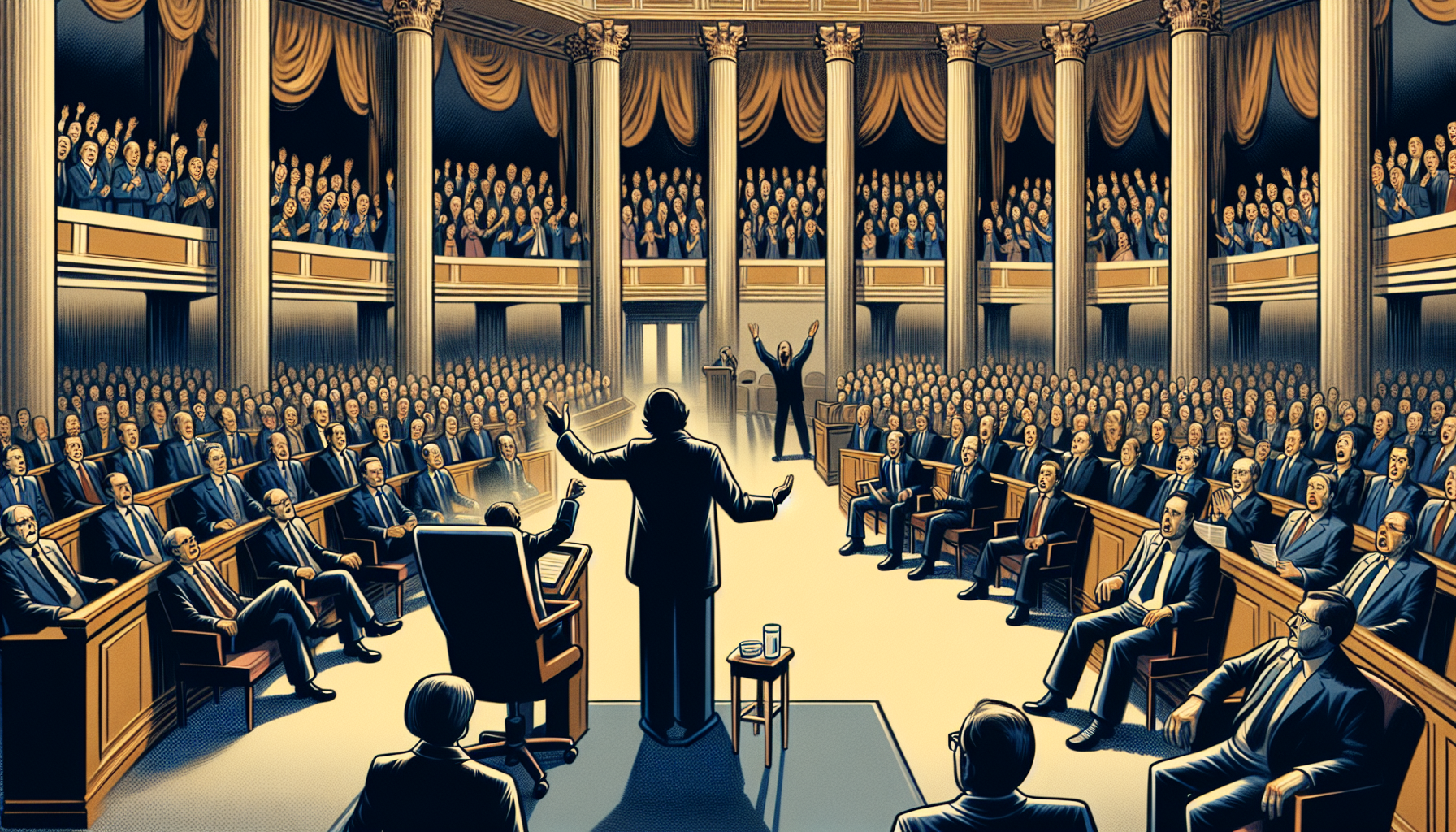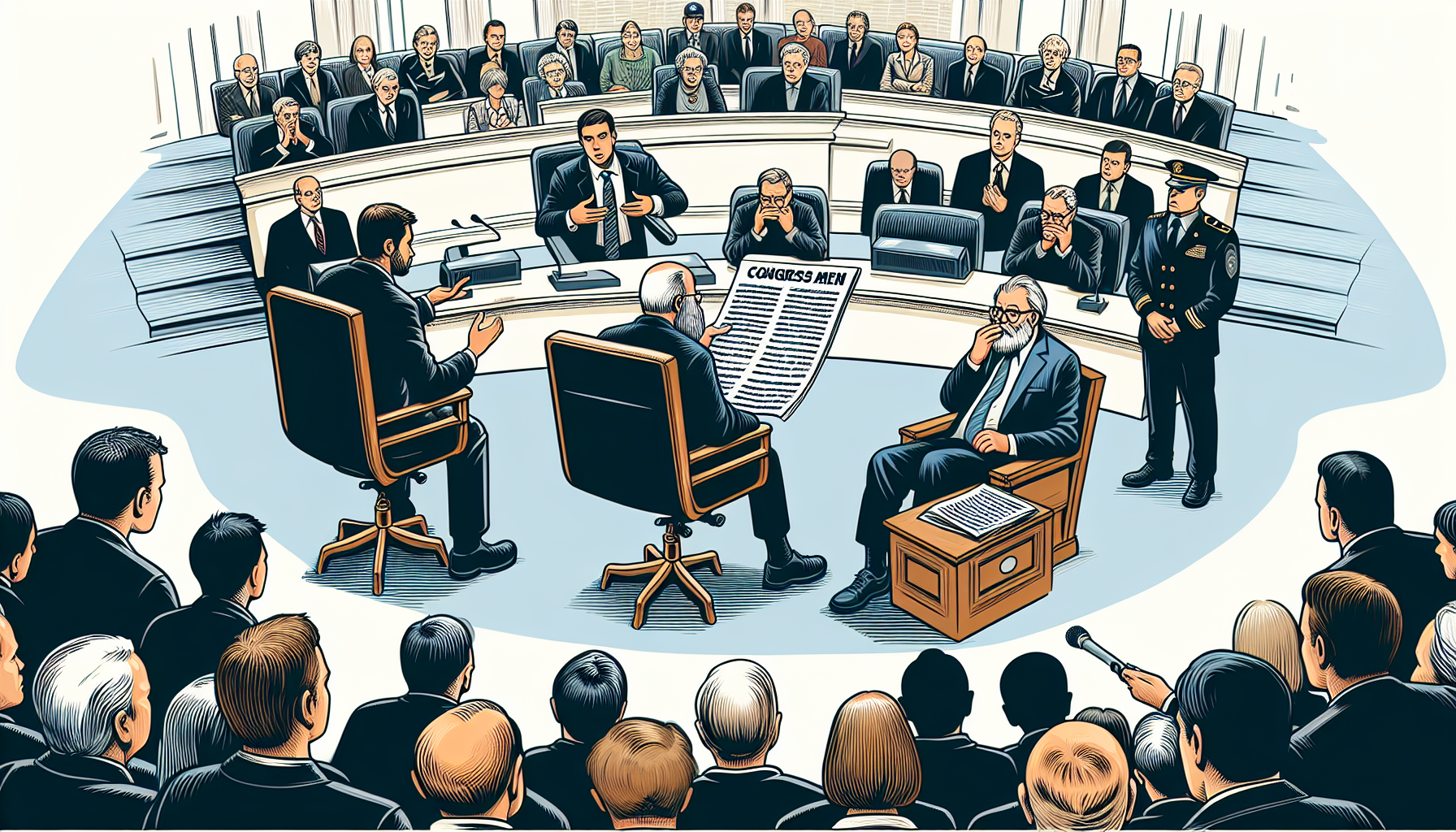House Censures Rep. Al Green for Heckling President Trump During Congressional Address
The House of Representatives made headlines on Thursday as it voted to censure Texas Democratic Representative Al Green for his disruptive behavior during President Donald Trump's speech to Congress earlier in the week. The resolution passed with a vote of 224-198, marking a rare moment of bipartisan agreement as ten Democrats joined Republicans in supporting the censure. This article delves into the details of the incident, the implications of the censure, and the broader political context surrounding the event.

The Incident That Sparked the Censure
During President Trump's address to Congress, Rep. Al Green stood up and heckled the president, shouting criticisms that disrupted the proceedings. The outburst was met with immediate backlash from both sides of the aisle, with many lawmakers expressing their disapproval of Green's actions. House Speaker Mike Johnson, a Republican from Louisiana, formally read the censure resolution aloud, a move that underscored the seriousness of the situation.
As Speaker Johnson concluded the reading, members of the Congressional Black Caucus began singing the civil rights anthem "We Shall Overcome," a poignant moment that highlighted the deep divisions within the chamber. The singing was met with shouts of "order!" from some Republican lawmakers, further escalating the tension in the room.
Reactions from Lawmakers
The censure vote elicited strong reactions from both sides. Democratic Representatives Ayanna Pressley and Joyce Beatty were among the most vocal critics of the Republican-led censure, shouting "Shame on you!" at their GOP colleagues. Meanwhile, Republicans defended the vote as a necessary measure to maintain decorum and respect for the office of the presidency.
Rep. Al Green, for his part, stood by his actions, arguing that his heckling was a form of protest against policies and rhetoric he found harmful. "I will not be silenced when it comes to standing up for what I believe is right," Green stated in a press conference following the vote.

What Does a Censure Mean?
A censure is a formal reprimand issued by the House of Representatives to one of its members for conduct deemed inappropriate or unbecoming of a lawmaker. While it does not carry the same weight as expulsion, a censure is a significant disciplinary action that can tarnish a member's reputation and influence within Congress.
Historically, censures have been rare, reserved for serious breaches of conduct. In this case, the censure of Rep. Al Green reflects the heightened tensions and polarization in American politics, where even minor disruptions can escalate into major confrontations.
Political Implications of the Censure
The censure of Rep. Al Green has broader implications for the political landscape. It underscores the deep partisan divides that continue to plague Congress, making bipartisan cooperation increasingly difficult. The fact that ten Democrats voted in favor of the censure also highlights the internal divisions within the Democratic Party, as some members seek to distance themselves from more confrontational tactics.
For Republicans, the censure serves as a rallying point to reinforce their commitment to upholding traditional norms and respect for the presidency. However, critics argue that the move is politically motivated, designed to score points with their base rather than address genuine concerns about decorum.
The Role of Protest in Politics
Rep. Al Green's actions raise important questions about the role of protest in politics. While some view his heckling as a legitimate form of dissent, others see it as a breach of decorum that undermines the democratic process. This incident is part of a larger debate about how far lawmakers should go in expressing their opposition to policies and leaders they disagree with.
Historically, protests within Congress have been rare, but they have occasionally played a significant role in shaping public opinion and policy. From the civil rights movement to the anti-war protests of the 1960s, acts of dissent have often been catalysts for change. However, the effectiveness of such tactics depends on the context and the public's perception of the protest.
Public Reaction to the Censure
The public reaction to the censure has been mixed. Supporters of Rep. Al Green applaud his willingness to stand up to President Trump, viewing his actions as a bold statement against policies they oppose. On the other hand, critics argue that his behavior was disrespectful and counterproductive, undermining the credibility of the Democratic Party.
Social media has been abuzz with debates about the incident, with hashtags like #CensureAlGreen and #StandWithAlGreen trending on platforms like Twitter. The polarized reactions reflect the broader divisions in American society, where political disagreements often spill over into personal attacks and heated rhetoric.
Looking Ahead: The Future of Congressional Decorum
The censure of Rep. Al Green is likely to have lasting implications for how Congress conducts its business. As political polarization continues to intensify, the norms and traditions that have long governed legislative proceedings are being tested. Lawmakers on both sides of the aisle will need to grapple with the challenge of maintaining decorum while also allowing for meaningful dissent and debate.
Some experts suggest that the incident could lead to new rules or guidelines for behavior during congressional sessions, aimed at preventing similar disruptions in the future. Others argue that the real issue is the underlying political divisions that fuel such confrontations, and that addressing these divisions is key to restoring civility in Congress.
Conclusion: A Moment of Reflection
The censure of Rep. Al Green is more than just a disciplinary action; it is a reflection of the broader challenges facing American democracy. As lawmakers and citizens alike grapple with the implications of this incident, it serves as a reminder of the importance of respectful dialogue and the need to find common ground in an increasingly divided nation.

